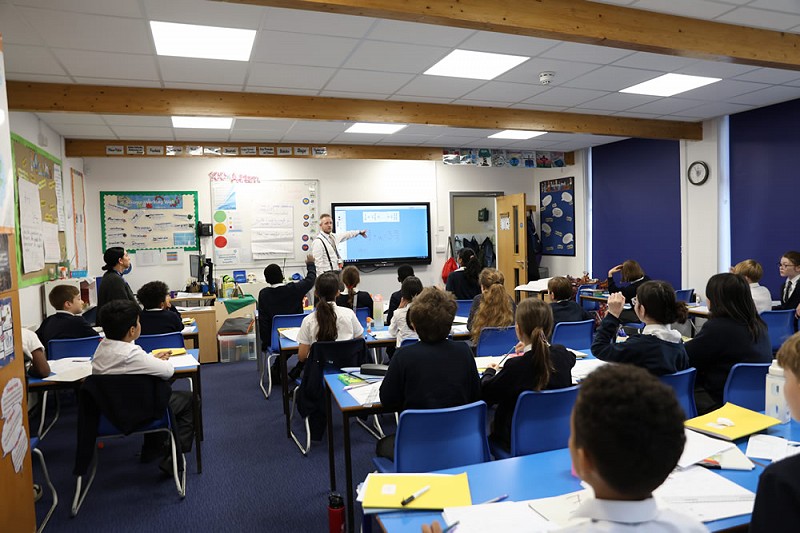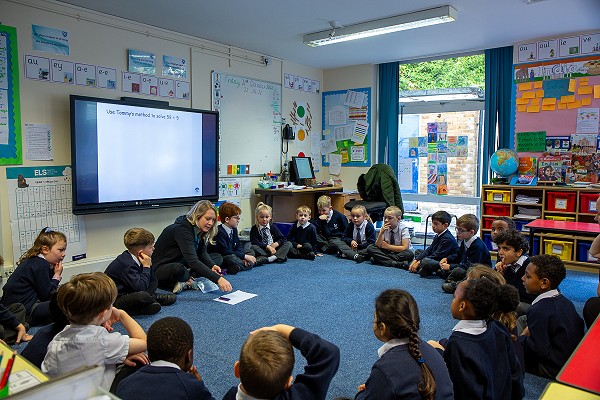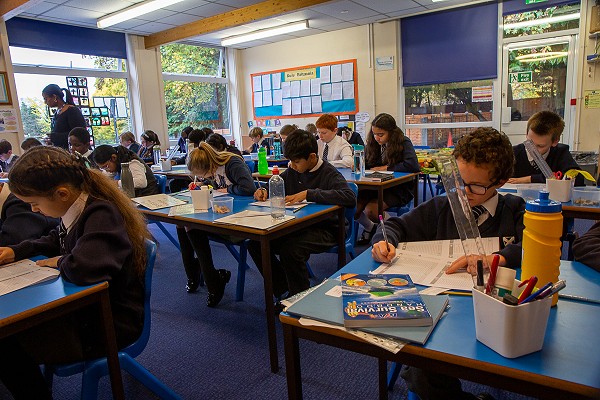Maths
At St Andrew’s CofE Primary, we recognise the fundamental significance of Maths in everyday life. It is not only essential for scientific, technological, and engineering pursuits, but also a vital life skill. We firmly believe in providing Maths education that fosters a profound understanding among our students, enabling them to apply this knowledge to various aspects of their lives beyond their primary school years. Moreover, we strive to develop a mastery of the Maths curriculum within our students.
To ensure the attainment of these goals, we have adopted the White Rose v3.0 scheme of learning across our school. By following this well-regarded curriculum, we aim to cultivate three key aspects of primary Maths: fluency, reasoning, and problem-solving skills. Our fundamental ethos when it comes to Maths is to empower all of our students to trust in their ability to excel in this subject. We foster this belief by encouraging persistence and curiosity, offering them the necessary tools for success.
In addition, we promote a collaborative approach where our students tackle the same concepts at the same time, progressing as a cohesive, unified class. By doing so, we foster an inclusive and supportive learning environment that strengthens motivation and overall academic achievement.
- Maths Overview
- Progression in Calculation Workshop KS1
- Progression in Calculation Workshop KS2
- Calculation Policy

Early Years Foundation Stage (EYFS)
At St Andrew’s, we firmly believe in the significance of equipping our pupils with a solid grounding in Maths throughout their time in our care. With this paramount objective in mind, our Early Years curriculum has been designed to ignite a sense of curiosity and enthusiasm for mathematical learning from an early stage. We accomplish this by seamlessly integrating Maths into the daily routines of our students.
Within our Early Years classes, we not only deliver direct and structured Maths instruction, but we also promote the development of mathematical concepts through child-initiated play opportunities. Both our Nursery and Reception classes are designed to offer children the chance to learn Maths through engaging in practical, active, and hands-on experiences. Our aim is to facilitate learning by enabling children to apply mathematical skills to real-life situations.
Key Stage 1
To effectively teach Maths in Key Stage 1, it is imperative to focus on the development of children's confidence and mental fluency in dealing with whole numbers, counting, and place value. Our primary goal in Key Stage 1 is to accomplish this by engaging students in activities that involve numerals, words, and the four basic operations. Practical resources, including concrete objects and measuring tools, are utilized to foster a hands-on learning experience.
Furthermore, we firmly believe that teaching should encompass activities that facilitate children in recognising, describing, drawing, comparing, and categorising various shapes. Additionally, students should be exposed to a diverse range of measures to describe and compare quantities such as length, mass, capacity/volume, time, and money.
By the end of Year 2, it is expected that children will have gained proficiency in their number bonds up to 20 and possess a thorough understanding of place value.
Key Stage 2
At Key Stage 2, our primary objective is to ensure that our students demonstrate increasing proficiency in whole numbers and the four fundamental arithmetic operations, while also mastering number facts and place value. Our goal is to instil in them efficient written and mental calculation methods, particularly when dealing with large whole numbers. In addition, we strive to develop their problem-solving skills, including their ability to work with simple fractions and understand decimal place value.
As our students progress through Key Stage 2, our curriculum expands to encompass a broader understanding of the number system and place value. By exploring complex concepts such as properties, arithmetic, and algebra, we aim to further enhance their problem-solving abilities. Our ultimate aim is to cultivate resilient mathematicians who are well-equipped for their future academic pursuits in Maths.


